‘Assassination, interference’: Fears raised over key Aussie ally
One of Australia’s most important allies has been caught in a diplomatic “firestorm” – and we won’t be able to escape the fallout.
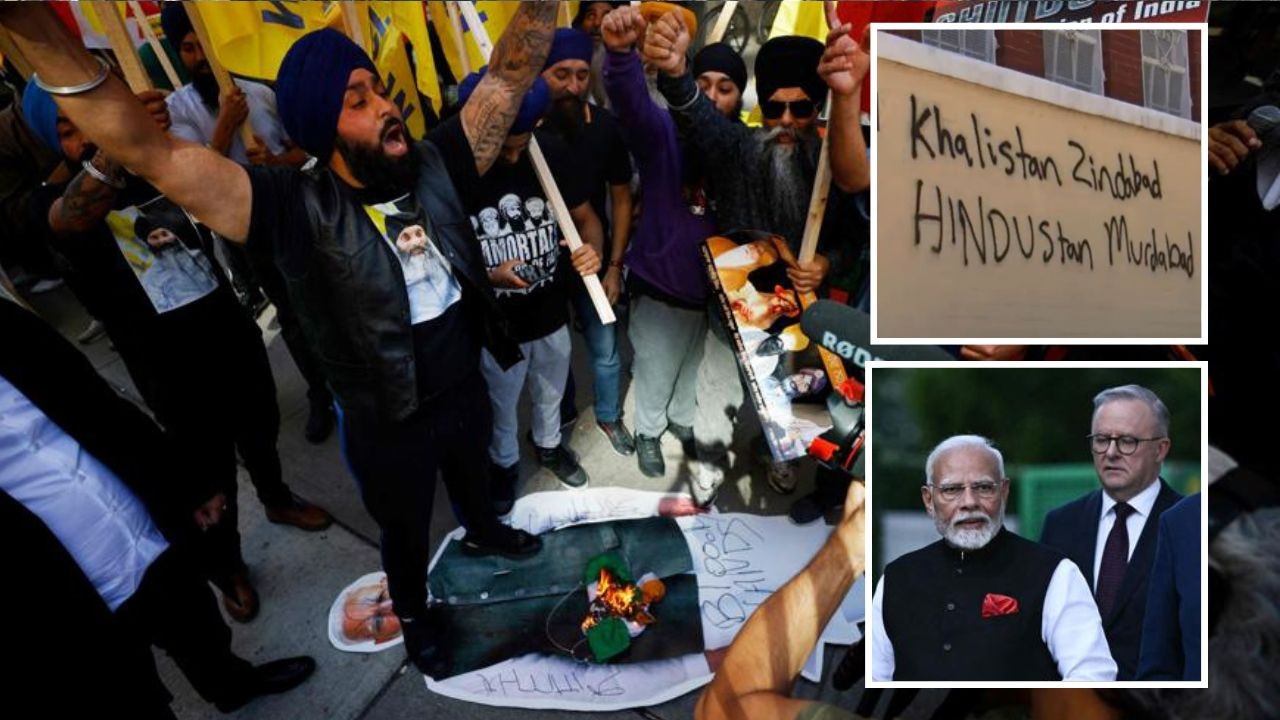
Friend or foe? India’s diplomatic relations with Canada and the United States stand on a knife-edge amid allegations of state-sponsored assassination and political interference. And Australia won’t be able to duck the crossfire.
Canada’s investigation into the Indian government’s involvement in the murder of local Sikh activist Hardeep Singh Nijjar last year has this week again erupted into open diplomatic conflict.
Ottawa alleges it has evidence that Indian diplomats have been working with criminal gangs to intimidate and coerce local ethnic and religious groups. The result has been a string of arson attacks, home invasions and drive-by shootings.
On Monday, Canada expelled the Indian High Commissioner along with five other diplomats accused of orchestrating attacks, after India refused to waive their diplomatic immunity.
New Delhi has reacted with indignation.
It immediately expelled six Canadian diplomats in retaliation.
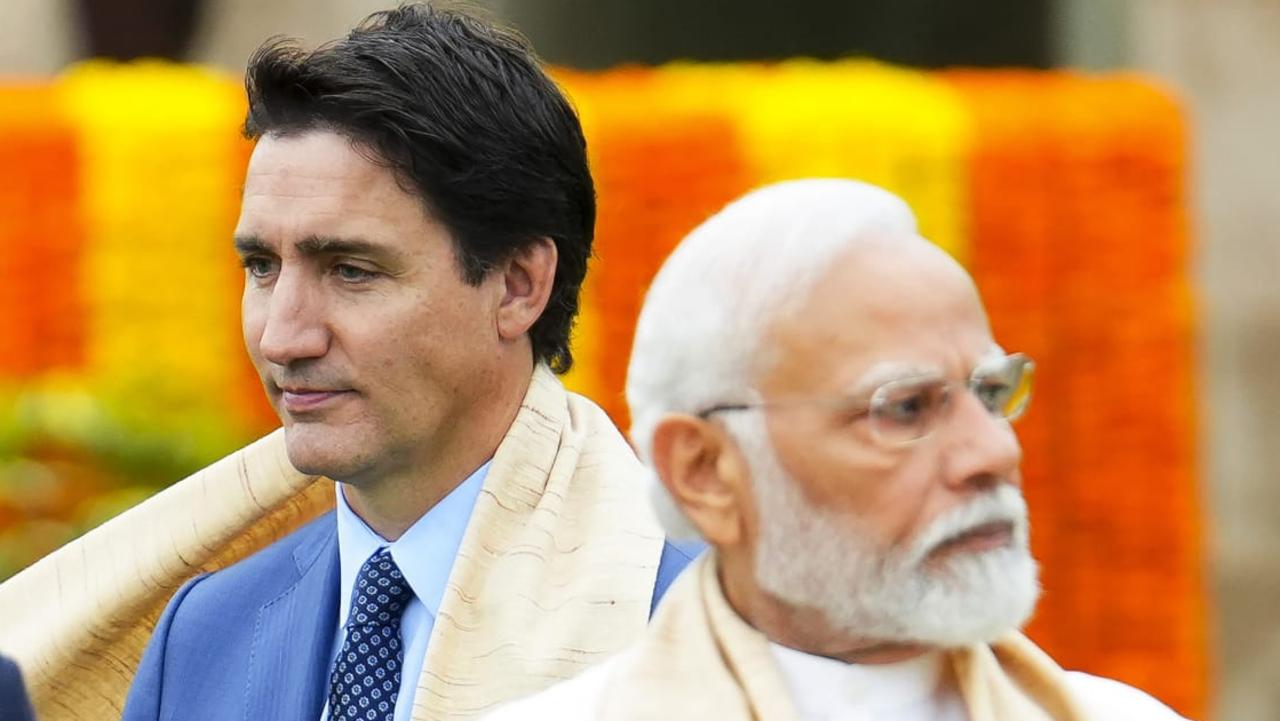
The Indian government issued a statement accusing Canadian Prime Minister Justin Trudeau of “smearing India for political gains”, insisting he had “not shared a shred of evidence” to support the accusations.
It went on to accuse Canada of ignoring requests to extradite “terrorists and organised crime leaders living in Canada”.
International affairs analysts say Indian Prime Minister Narendra Modi’s increasingly authoritarian style is becoming a severe inconvenience for his Western alliance partners.
“The Modi regime has been behaving externally as it governs internally – with authoritarianism, violence and incompetence, all while simultaneously claiming to be the Vishwa Bandu (world’s friend) and the victim of vast conspiracy theories aimed at keeping India down,” argues University of Adelaide associate professor Priya Chacko in the Lowy Institute’s Interpreter publication.
And Ottawa isn’t the only government making such accusations.
Washington DC has accused an Indian official of directing a plot to assassinate a US-based Sikh activist.
And Canberra’s expulsion of what ASIO labelled a “nest of spies” in 2020 has been linked to Indian operatives.
“India’s democracy was once feted by the West as a model for the developing world,” argues foreign affairs analyst Mohamed Zeeshan in The Diplomat journal.
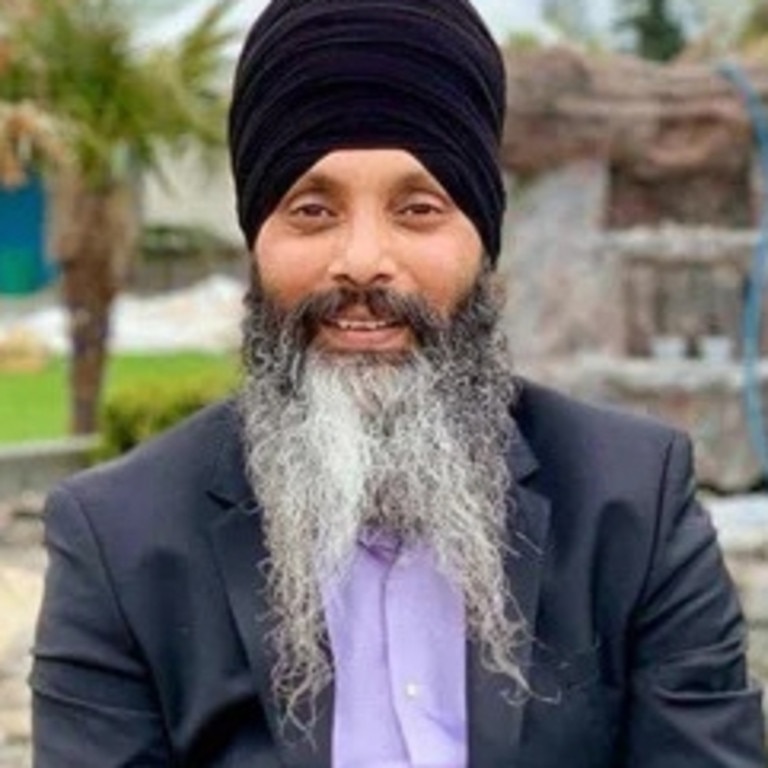
“Now, it is increasingly treated as a has-been. That puts India on a collision course with the West’s global interests.”
With friends like these …
India is being accused of following a disturbing trend by intimidating and coercing its expatriates living in Australia.
“The allegations against the Indian government in Canada are an example of transnational repression – an increasingly prevalent practice of authoritarian states including Russia, China and Turkey to curb dissent against their regimes,” says Chacko.
Beijing has been accused of intense surveillance of the Muslim-minority ethnic Uyghur group in Australia. The culture faces ethnic cleansing in its homeland of Xinjiang, with evidence pointing to the existence of numerous enormous re-education camps, sterilisation campaigns and repression of cultural traditions.
Likewise, Modi’s Hindu nationalist government has been accused of repressing its Muslim, Christian and Sikh communities both at home and abroad.
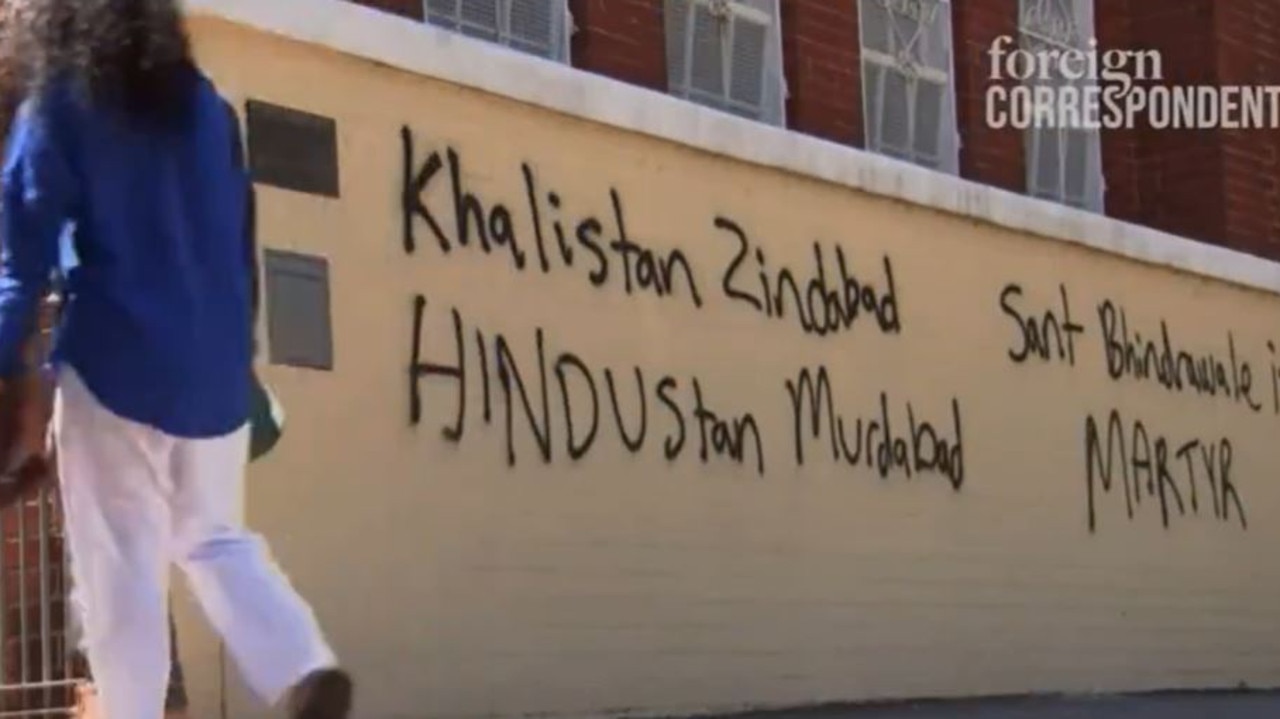
But Canberra has demonstrated a reluctance to address India’s human rights abuses.
“Unlike Canada, the United States and Germany, which have prosecuted Indian intelligence assets, Australia has refused to officially implicate India,” states Chacko.
“It allows India to evade accountability for undermining Australian sovereignty and the civil liberties of its citizens. The alarming evidence from Canada should be an impetus for Australia to rethink this approach.”
It’s a delicate situation.
Australia is host to more than 900,000 Indian expats. And the community is highly active, both economically and politically.
Canberra, in particular, sees New Delhi as a balancing factor against Beijing’s expansionist behaviour in South East Asia. And it’s been working hard to expand defence, industrial, economic and academic ties to the 1.56 billion-strong South Asian powerhouse.
But foreign affairs analysts fear India may be using its emerging clout as a tool for coercion, just as Beijing has.
“Political opponents in India have regularly criticised Modi for his support of crony firms, especially those owned by the billionaire Gautam Adani,” argues Yale University analyst Sushant Singh in the journal Foreign Policy.
“These ties have attracted attention in India’s neighbourhood, too.”
Conflicts without borders
Prime Minister Modi’s Bharatiya Janata Party (BJP) has cultivated a hard line Hindu nationalist ideology.
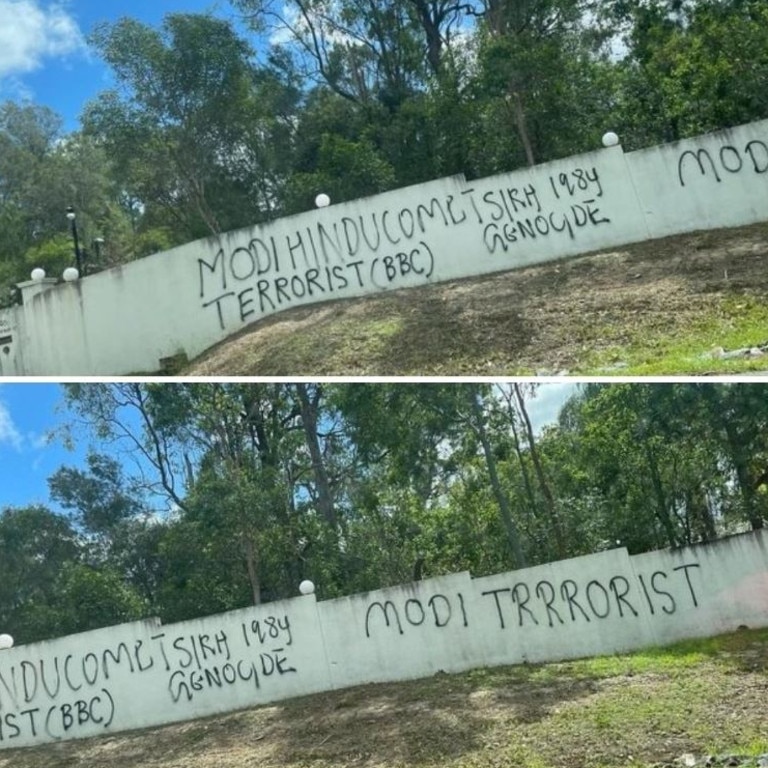
This has brought with it increasing repression of rival religious and political groups.
It’s not gone unnoticed on the world stage.
“I appreciate the country’s secular and democratic traditions and its great diversity,” UN High Commissioner for Human Rights Volker Turk said in March.
“I am, however, concerned by increasing restrictions on the civic space — with human rights defenders, journalists and perceived critics targeted — as well as by hate speech and discrimination against minorities, especially Muslims.”
Much of India’s foreign interference appears aimed at the expatriate Sikh communities.
Some advocate creating an independent Sikh state of Khalistan (Land of the Pure).
Like the Jewish claim to Israel, the Sikh community say they have an overwhelming ethnic and cultural link with the land in the Punjab region, and its creation would free them from persecution.
New Delhi adamantly rejects the idea.
And it regularly expresses its displeasure to Canada, Britain, the US and Australia over Sikh separatist demonstrations and vandalism.
Queensland Police are investigating an apparently pro-Khalistan graffiti attack on Hindu temples in Brisbane. They say this may have been intended to raise the profile of the separatist group Sikhs for Justice.
But India is being accused of taking international justice into its own hands.
US Attorney-General Merrick Garland says the trial of Indian Nikhil Gupta for conspiring with an Indian intelligence official in an unsuccessful assassination plot shows the White House “will not tolerate attempts to silence or harm American citizens”.
India has since arrested a former agent of its intelligence agency, the Research and Intelligence Wing (RAW).
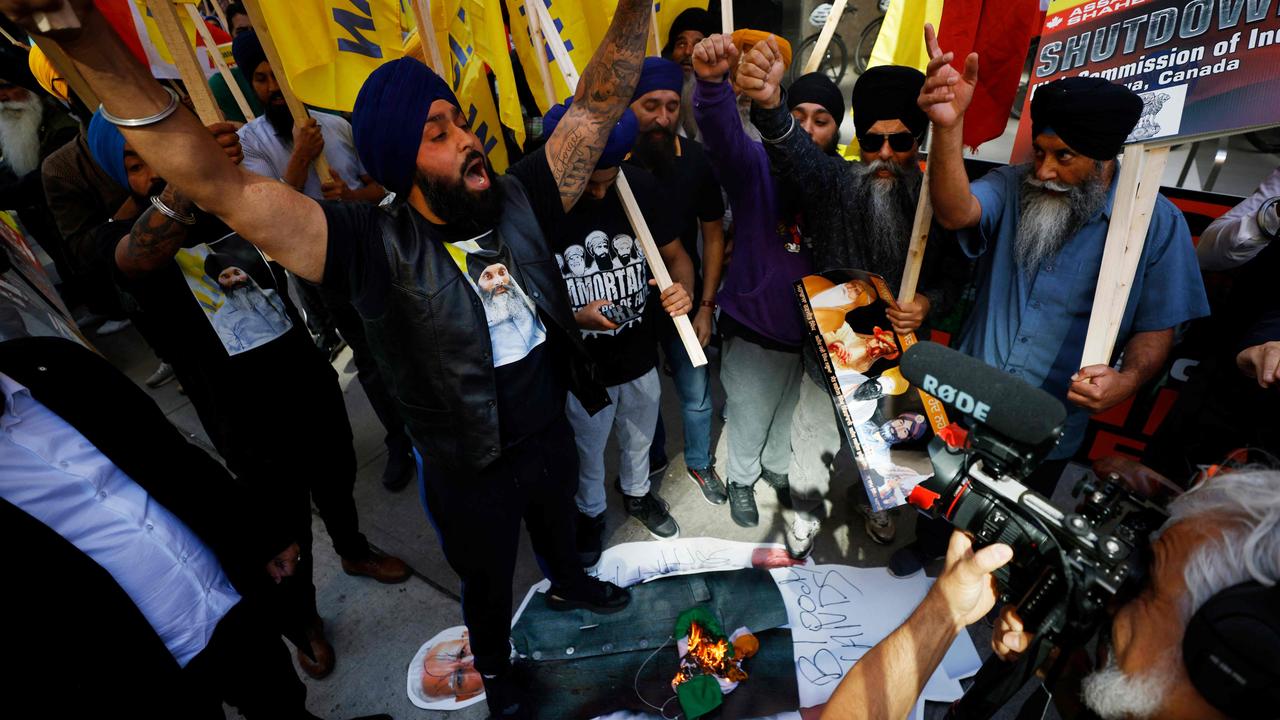
And Ottawa continues to pursue the killers of a Sikh activist despite the political firestorm it has ignited.
“The Indian government has repeatedly violated Canadian sovereignty, targeting its citizens with lethal violence,” writes Chacko.
“Canada is conducting a high-profile inquiry into foreign interference, in which officials have named India as the second-most active perpetrator of foreign interference after China, using proxies to target the Sikh community with violence, influence Canadian politicians, spread disinformation through ethnic media and support pro-Indian government candidates in the last two Canadian elections.”
‘Never again’, again?
“The United States, Australia, and Canada all share India’s strategic goal of countering China,” argues Wilson Centre South Asia Institute director Michael Kugelman.
“India may hope its status as a strategically significant state will prevent either the United States or Australia from responding harshly to India’s actions.”
A policy of “the enemy of my enemy of my friend” has plagued the Western alliance for decades.
The Soviet Union’s Joseph Stalin was seen as a necessary ally in the fight against Adolf Hitler’s Nazi Germany.
Iraq’s President Saddam Hussein was seen as a vital ally to balance Iran.
The Philippines’ Ferdinand Marcos was seen as a strategic counter to Communism.
Likewise, Prime Minister Modi’s vision for India is an uncomfortable match.
“New Delhi sees the proliferation of liberal norms and the Western world order as a direct threat to the success of Hindu nationalism,” argues Zeeshan.
“As civil society institutions and multilateral agencies based in the West publicly call India’s democratic credentials into question, the Modi government will look to push back by discrediting the US and its global hegemony.”
It’s a well-worn authoritarian path.
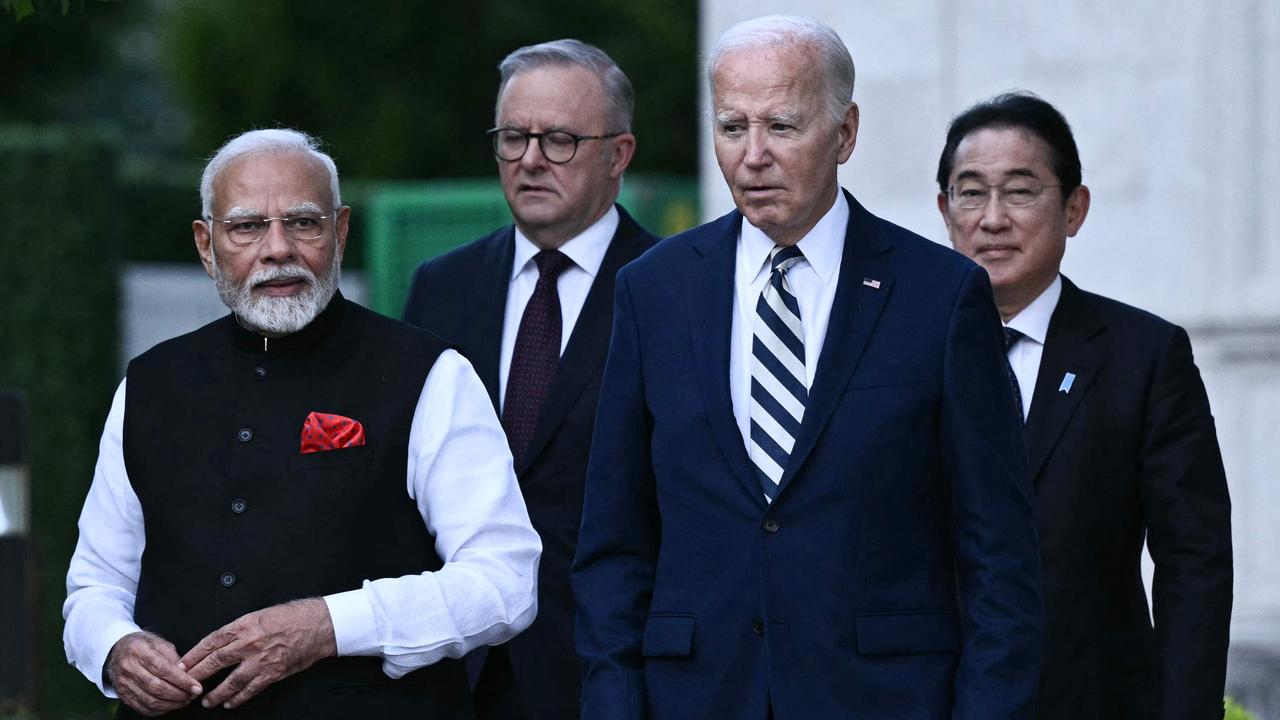
“New Delhi has largely dispensed of this ‘meeting of minds’,” Zeeshan adds.
“Instead, it has adopted a frontal attack on the West and what it perceives as the West’s hegemony of the world.”
Modi had been arguing to his people that he had improved India’s standing on the world stage.
But international criticism for censorship of media, imprisoning political opponents and religious-ethnic hate speech has undermined this.
India’s External Affairs Minister Subrahmanyam Jaishankar has accused Western governments and media of presenting “a very extremist image of India, of the government, of the Prime Minister … This has been going on for a decade”.
Modi has refused to condemn Russia’s invasion of Ukraine – despite concerns over its own sovereignty in the Himalayas in an escalating conflict with China. He’s also pressing ahead with efforts to bypass the established global economic and regulatory system through the Brazil, Russia, India, China and South Africa (BRICS) cooperative agreement with Beijing and Moscow.
“This is a new turn for India’s foreign policy,” concludes Zeeshan.
“New Delhi has always argued for multipolarity under successive governments in an effort to raise its own profile.
Yet, at least since the turn of the century, it has rarely argued for the upturning of Western hegemony the way China or Russia have long done.”
Jamie Seidel is a freelance writer | @JamieSeidel
Originally published as ‘Assassination, interference’: Fears raised over key Aussie ally





